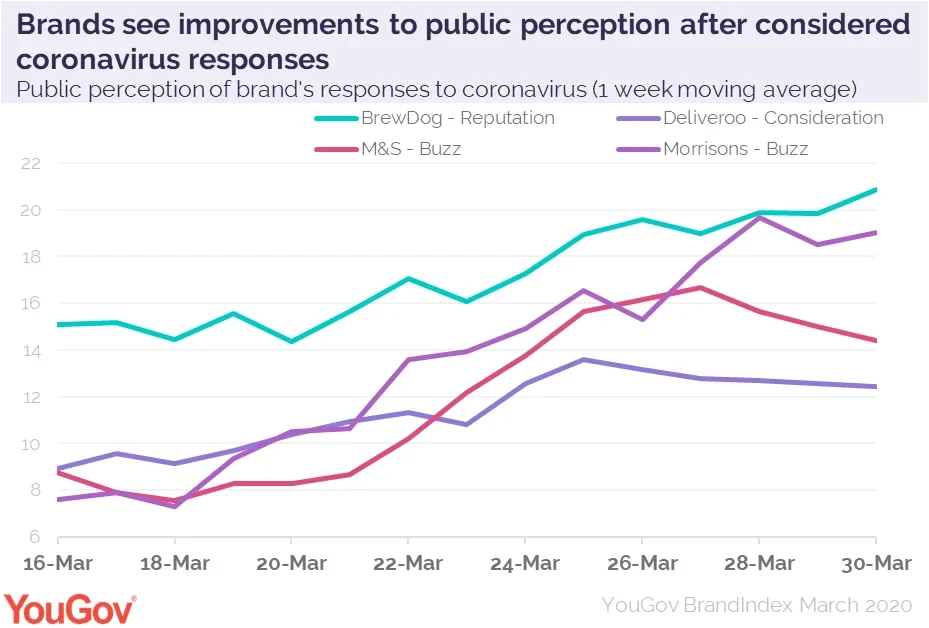As Britain settles into its second week of lockdown, daily life has become almost unrecognisable. The retail industry has been hit hard as a direct result of enforced closures and decimated consumer demand, leading many businesses to issue profit warnings, withhold rent and lay off staff.
However, there are brands who have reacted well to the crisis and those which have make mistakes.
One brand who has reacted well in the public’s view is BrewDog, whose joint founders have not only forgone their salaries this year to protect the workforce but have also adapted production lines to produce sanitiser. The craft brewery has also opened virtual bars to encourage people to continue connecting online. YouGov BrandIndex data shows that BrewDog’s reputation scores have increased by an impressive 5.8 points since the 16th March.

Food delivery courier Deliveroo brought in no-contact delivery options to abide by social distancing rules, meaning many small restaurants were able to continue trading – this led to Deliveroo’s consideration scores increasing 3.5 points in 2 weeks.
While all supermarkets have faced intense pressure and demand this past month, M&S has created essential goods boxes, brought in social distancing initiatives in-store, and partnered with Deliveroo to deliver groceries contact-free. These efforts increased buzz scores by 9.1 points in just over a week. Similarly, Morrisons donated £10 million to food banks and brought in similar social distancing measures increasing their own buzz scores by 11.4 points.
On the other hand, there are brands whose public perception has been negatively impacted by how they have handled the situation. Mike Ashley, chief executive of Sports Direct, had to issue an apology for refusing to close stores after the government ordered all non-essential shops to close. YouGov data shows that 88% of Brits don’t consider selling sports equipment as an essential service, and Sports Direct’s buzz scores subsequently fell from -3.9 to -39.2 according to BrandIndex.
Wetherspoons also sparked public anger by refusing to close pubs or pay its workforce, leading to a 16.9 point decrease in buzz scores to -23.2.
Once the dust settles, the retail landscape is likely to be forever changed. But as YouGov data shows, acting rapidly to the ongoing situation can get you ahead in the public’s view and any brands which fail to adapt in time might be left behind.
This article previously appeared on City A.M.
Image: BrewDog

















